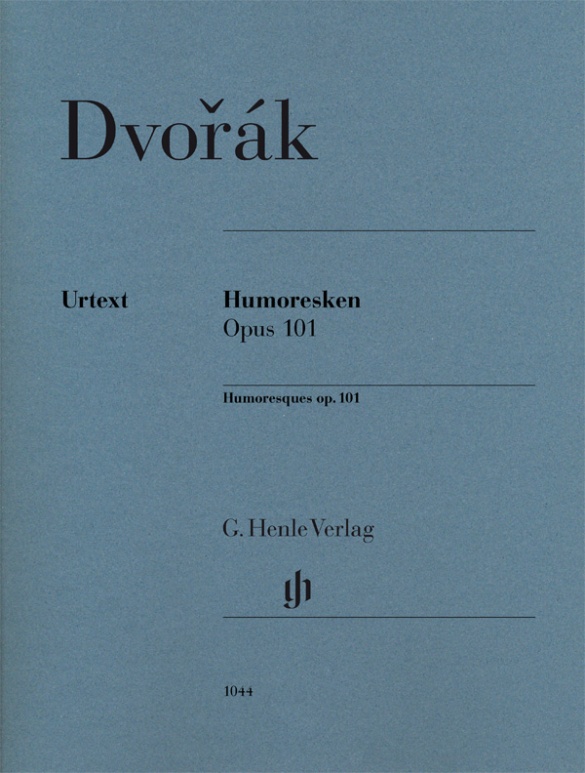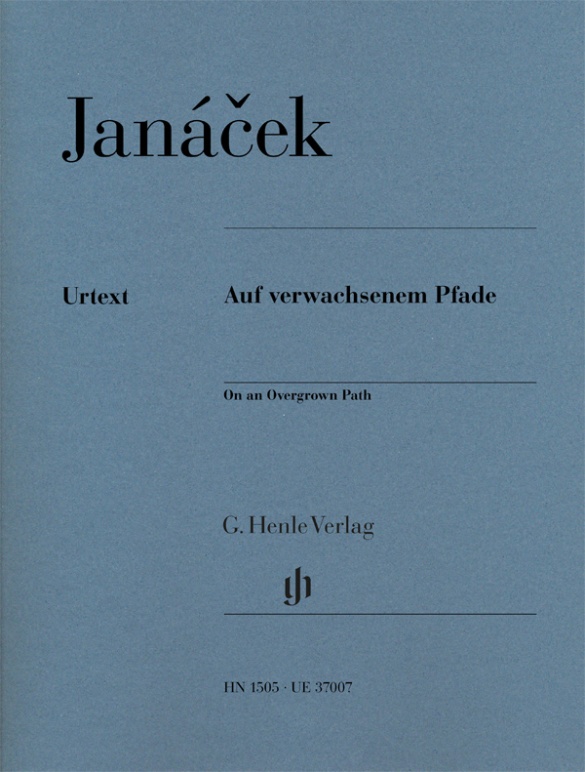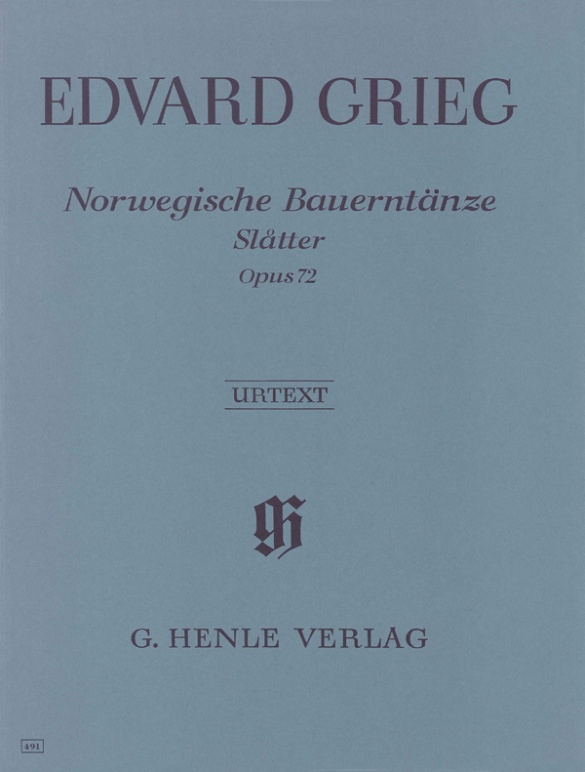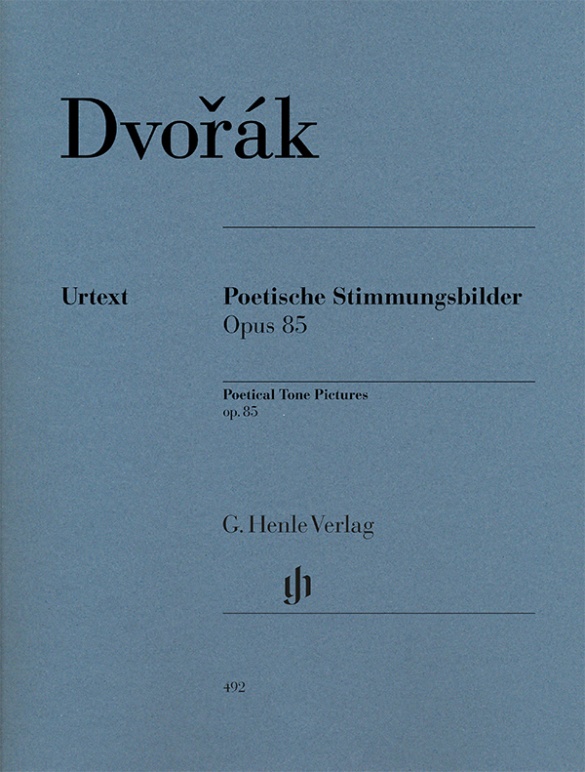

Antonín Dvorák
Poetical Tone Pictures op. 85
Antonín Dvořák’s piano works are generally overshadowed by his symphonies and chamber music works, especially since those from around 1880 are very much oriented around Schubert, Chopin and Schumann. The situation is different with Dvořák’s later romantic tone poems, the “Poetic Tone Pictures” op. 85. Anyone in search of romantic piano poetry off the beaten track may find much pleasure in this, Dvořák’s largest piano cycle from 1889, for example in the impressive piece “At the Old Castle” or in the lively “Peasant Ballad”. The autograph and the first edition from the year of the work’s composition have been used by editor and Dvořák specialist Milan Pospíšil as the basis of our Urtext edition.
Content/Details
(Explanation)
About the Composer
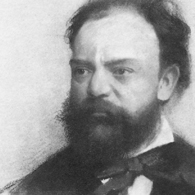
Antonín Dvorák
With Smetana he is the most famous Czech composer of the nineteenth century, contributing to the dissemination and appreciation of Czech music throughout the world. Among his around 200 works, encompassing all standard genres, are nine symphonies, fourteen string quartets, and twelve operas.
| 1841 | Born in Nelahozeves (Mühlhausen) on the Vltava River on September 8, the son of a butcher and innkeeper. |
| 1853 | Attends the training school in Zlonice; there he receives a comprehensive musical education from Josef Toman and the cantor Antonín Liehmann; subsequent education in Česká Kamenice (1856–57). |
| 1857–59 | Studies at the organ school in Prague. Until 1871 he will earn his living as a music teacher, organist, and violist. |
| 1861 | String Quintet No. 1 in A minor, considered his first work. |
| 1862 | Position as solo violist in the orchestra of the Bohemian Provisional Theater (conducted by Smetana, among others) |
| 1873 | Breakthrough with the premiere in Prague of his patriotic hymn “The Heirs of the White Mountain,” Op. 30. Employment at the private Prague School of Music. Several state scholarships. |
| 1874–77 | Organist at St. Adalbert church. |
| from 1876 | “Moravian Duets,” Opp. 20, 29, 32, and 38 (1876–77), “Slavonic Rhapsodies,” Op. 45 and the first series of “Slavonic Dances,” Op. 46 (both from 1878) enjoy great success. His fame abroad grows. |
| 1882 | Premiere of the opera “Dimitrij”, in the tradition of grand opera. |
| 1884 | First invitation to England, after which eight more will follow. |
| 1886 | Premiere of his oratorio “Saint Ludmila,” Op. 71. |
| 1891 | Professor of composition at the Prague Conservatory. |
| 1891–95 | Director of the National Conservatory of Music in New York. |
| 1893 | Premiere in New York of Symphony No. 9, “From the New World,” Op. 95 (American folkloric elements, cyclic techniques). |
| 1901 | Premiere in Prague of his most famous opera, “Rusalka.” |
| 1904 | Premiere in Prague of his last opera, “Armida.” Death in Prague on May 1. |
About the Authors
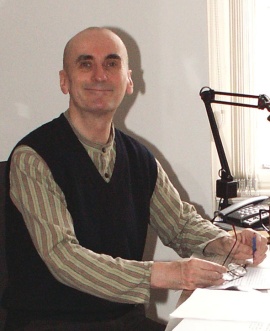
Milan Pospísil (Editor)
Dr. Milan Pospíšil, born in 1945, studied music theory and music history at the Charles University in Prague as well as at the Ruhr-Universität in Bochum (1963–1969); in 1971 he did his doctorate there with a thesis on “Giacomo Meyerbeer: Les Huguenots. Příspěvek k analýze stylu”, and at the Czechoslovak Academy of Sciences in 1988 on “Antonín Dvořák: Dimitrij, op. 64. Kritická edice”.
He worked as a specialist and scholar at the Czechoslovak Academy of Sciences (now Academy of Science of the Czech Republic) in Prague for almost 30 years. In 1981 he co-founded the Smetana Festival and the interdisciplinary symposium on the issues of the 19th century in Pilsen, which still takes place today. Since 2000 he has been the curator and a research associate at the National Museum in Prague.
Product Safety Informations (GPSR)

G. Henle Verlag
Here you can find the information about the manufacturer of the product.G. Henle Verlag e.K.
Forstenrieder Allee 122
81476 München
Germany
info@henle.de
www.henle.com
Diese Poetischen Stimmungsbilder sind bei Henle mit Sorgfalt herausgegeben.
SMPVrecommendations
autogenerated_cross_selling
Further editions of this title
Further editions of this title


